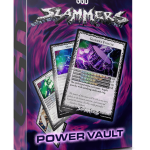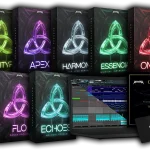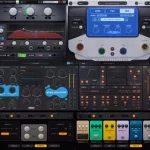XPERIMENTA Audio Due v1.9.31 KONTAKT C3 + C7
C3 + C7
When Flavio and the team decided to make this sample library, they had in mind to create something special, something unique, that could really keep the real essence of the acoustic piano. We combined the art of sampling and the art of scripting to make the best sampled piano we could, made for satisfying the most demanding composers and musicians.
XPERIMENTA Due is our new-philosophy piano library, containing two premium pianos recorded with top-end gear and unique detail.
– 2 beautiful sampled pianos in one library: a C7 Gran Coda and a C3 Half Coda
– 14 Dynamic Layers chromatically sampled
– 16,6GB, 9.500 samples and 1 year of work
– Up to 3 Microphone positions: Close, Player (only C7), Room
– Real Sympatetic Resonance, Overtones and advanced Repedaling simulation
– Shape your sound with “Formant”, “Tone balance” and an integrated envelope.
– 15 noise layers (cotton, leaves, etc.) and 9 instrument layers (choir, kantele, etc.)
– New! “Feeling” simulates the responce of a weighted keyboard
– New! now Due supports Half Pedaling
Every pianist knows that not all the pianos are the same. Each instrument can have a so different touch and color, and sometimes it is important to find the right piano for the right piece.
This is why we sampled two instruments so deeply: we wanted to give to our customers the freedom to choose between two different instruments, recorded both with the same quality.
The art of recording
After endless sessions of testing, we recorded the pianos using only top-end microphones as DPA, Neumann, Gefell, in two beautiful-sounding rooms in Sibelius Academy Studios, Helsinki.
The art of scripting
We simulated the acoustic behaviour of the piano, with a combination of fine sampling of the mechanics (i.e. hammer and pedal noises) and a phisic-modeling philosophy of scripting.
The game of the resonance
We believe that a piano is not just a sum of its sounds: indeed, all the strings “interact” each other when played, in a complex game. We recreated this interaction in two ways:
Overtones: We sampled the “overtones”, that are the harmonic resonances that the strings generate by sympathetic resonance, controlled by a special engine. We also sampled the sound of the strings with the sustain pedal down.
Impulse Response: in collaboration with the Sibelius Academy Music Technology Department, we sampled the impulse response of the strings and the body of the C7.
Formant control
“Formant” allows you to make the sound of the piano “bigger” or “smaller”, by changing the formant of the sound. It can be used both for shaping the sound and for creative purposes. On maximun/minimum values, you can create a slow-down effect (like in the demo) or a chipmonk tune.
Microphone settings
We sampled the pianos with multiple microphone positions.
– “Close”: the microphones are close to the strings, and the sound is modern and clean.
– “Player”: the microphones are in the same position of the player. The sound results incredibly natural and well balanced.
– “Room”: the microphones are far from the piano, so they will capture the reflection of the recording room. The sound is wide and it fits well with classical music.
Layers
Expand your possibilities: Due allows you to add a noise or an instrument layer to the sound of the piano. With this feature, is possible to create a felt-like piano (with a cotton layer) or a full sound preset (with a choir layer).
– NOISE LAYERS: Cotton 2, Cotton 2, Cotton Soft, Paper, Sponge, Leaves, String Perc, Key, Metal, Plastic 1, Plastic 2, Warm Plastic, Glass, Bells 1, Bells 2
– INSTRUMENT LAYERS: Bells, Kantele, Piano, Harmonics, Choir, Guitar, Glockenspiel, Vibraphone, E. Guitar
Oldify
“Oldify” is a collection of effects that allows you to simulate an old recording.
– Tape adds an harmonic distorsion to the sound
– Flutter simulates a fast modulation of the tape
– Wow simulates a slow and random modulation of the tape
– Filter is a band-pass filter: here you can easily simulate crappy speakers, like a phone-call
Convolution Reverb
Choose between 17 convolution reverb, and place your piano where you want!
IR Reverb: Room 1, Room 2, Large Room 1, Large Room 2, Large Room 3, Hall 1, Hall 2, Wood 1, Wood 2, Large Hall, Opera Hall, Parking 1, Parking 2, Church 1, Church 2, Arena, Spring.
Homepage:-https://www.xperimentaproject.com/xperimenta-due/









![Toontrack Hollowbody EBX [WIN+MAC]](https://www.goaudio.net/wp-content/uploads/2024/09/Toontrack-Hollowbody-EBX-150x150.png?v=1726103695)
![Toontrack LATEST RELEASES MIDI BUNDLE [SEP 2024]](https://www.goaudio.net/wp-content/uploads/2024/09/gandr-collage-11-150x150.jpg?v=1725764744)
![Blockbuster Sound Sand Dune & Mockingbird [BUNDLE]](https://www.goaudio.net/wp-content/uploads/2024/08/blockbuster-sound--150x150.png?v=1724378090)

![Blockbuster Sound Mermaids Sirens & Horror Pack [BUNDLE]](https://www.goaudio.net/wp-content/uploads/2024/08/Blockbuster-Sound-150x150.png?v=1723854097)



![AEJuice I Want To Learn It All Bundle 2024 [NEW]](https://www.goaudio.net/wp-content/uploads/2024/12/juice-150x150.webp)


